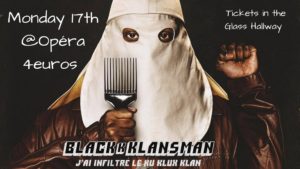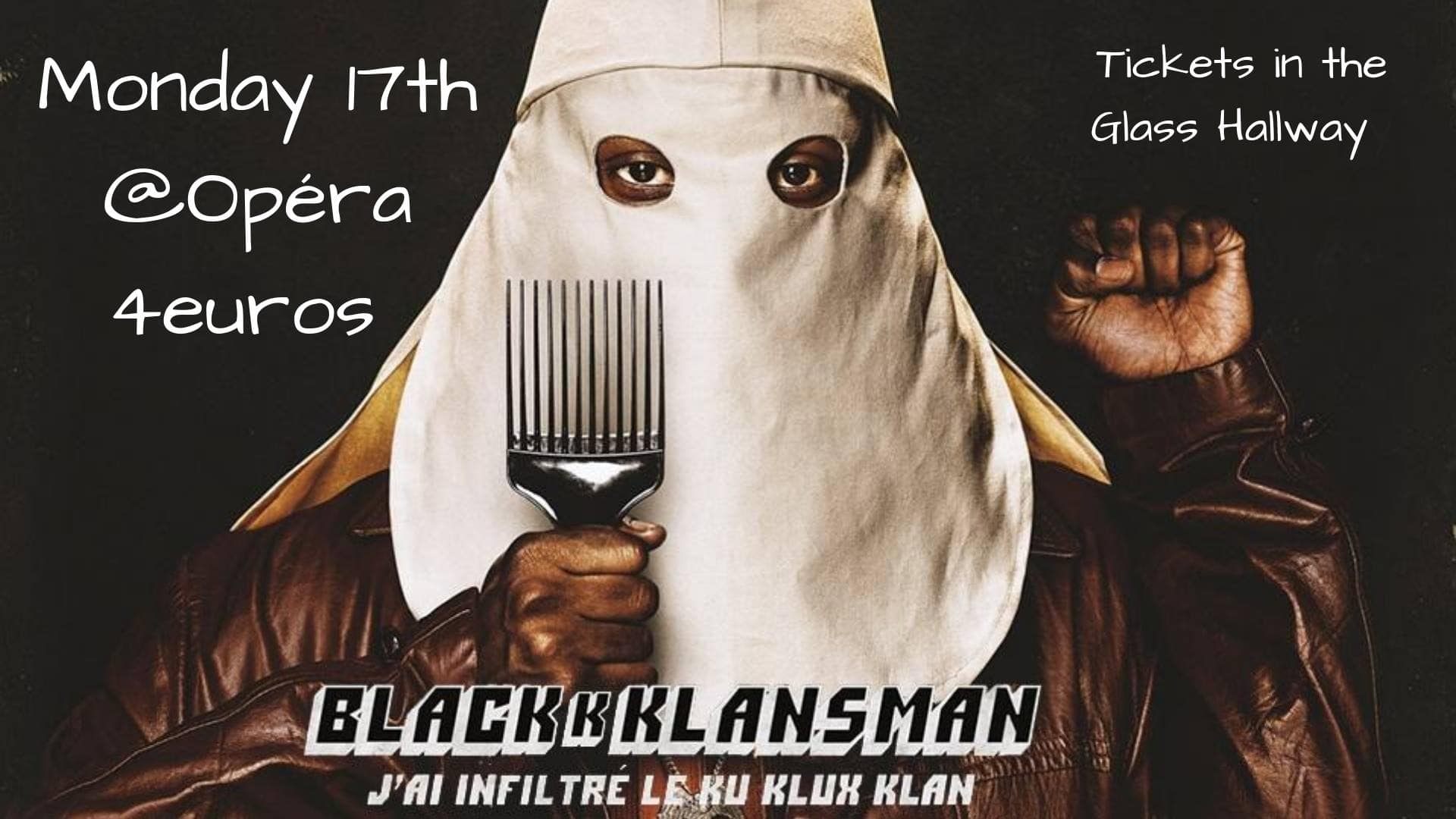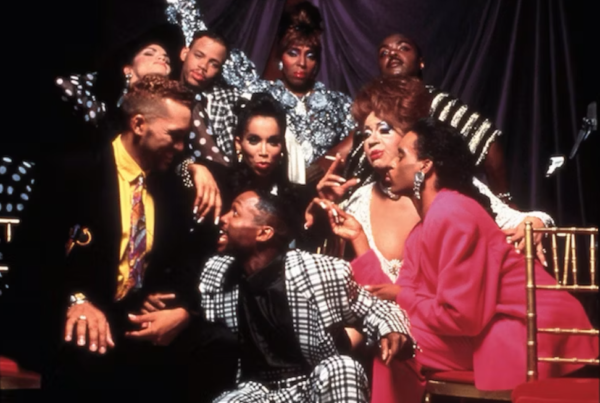
Poster for the screening. By: Unframed, Sciences Po Reims.
On Tuesday night, Unframed’s sold-out film screening of Spike Lee’s latest film BlacKkKlansman took place at Cinema Opera. In short, the film is based on the true story of a black cop, Ron Stallworth, who in 1978 infiltrated the Ku Klux Klan using his partner, a white Jewish cop. BlacKkKlansman gives both a comedic and haunting look into the history of police brutality against black Americans, the beliefs of the Ku Klux Klan, and the sexist treatment of women.
You may be wondering two things: one, how could the topics of racism and brutality be treated in a comedic way? And two, if this film is set in the the past why is it still haunting?
The comedic and satirical aspect of the film was one of absurdity, as vile language was often presented in a ironic manner. The very image of a black man talking on the phone with David Duke —the current and then president of the Ku Klux Klan— using wildly racist language is hard to not laugh at. One scene where an outspoken member of the klan denies the holocaust received genuine laughter from the Sciences Po audience because, I mean, how absurd is holocaust denial? At the same time, the dark truth is that cries of holocaust denial is not uncommon.
The film’s language was not only funny but also chilling and grotesque. The film was filled with vile language used to describe Jews as money-stealers, black men as violent beasts, and black women as sexual objects. Scenes like this left the audience scrunching up their faces in disgust or turning to their friends in shock at the blatant vulgarities and the positive response it garnered from klan members in the film.
What is haunting in the film is also the use of “America First” and “Make America Great Again” rhetoric. Audiences will recognize it as the type of language in the centre of American politics at the moment. The socio-political context of this film resonates strongly with today’s audiences. It brings to mind cases of police brutality and the criminalisation of protests against it, however peaceful they may be. The case of Colin Kaepernick taking a knee during the national anthem and the outrage against him is yet another example of race-issues playing out in today’s America. Watching a movie where a cop and a klan members laugh about raping a black woman is chilling in the era of the #metoo movement, where sexual harassment is being exposed more than ever. In scenes like this, audience members were left eyeballing each other as if to silently acknowledge the horror of the way the world was and still is. The fight to end these issues is far from over.
Spike Lee’s film is full of juxtapositions. The powerful scene of black activists chanting “Black Power!” is juxtaposed with the Ku Klux Klan chanting “White power!”. The story of a white supremacist’s wife who yearns for the approval of her domineering husband is contrasted by a powerful, black, female activist who inspires and motivates the men in her life.
To say the least, this film is provocative, powerful and all too relevant as it offers an unfiltered look into a world we may think is behind us, a world we think we understand. It is a movie you take with you out of the movie theatre, it is all you want to think about and talk about for hours afterwards. It makes the past feel closer than ever.
Spike Lee makes his audiences laugh but also squirm uncomfortably in their chairs with his blatant parallels between racism of the past and present. Despite the silence at the end of the film during his intentional minute of silence, the sobering depiction of today’s reality is louder than ever. It is important that this message is heard.
(Also be sure to keep an eye out for more of Unframed’s movie screenings!)
Other posts that may interest you:
Discover more from The Sundial Press
Subscribe to get the latest posts sent to your email.





